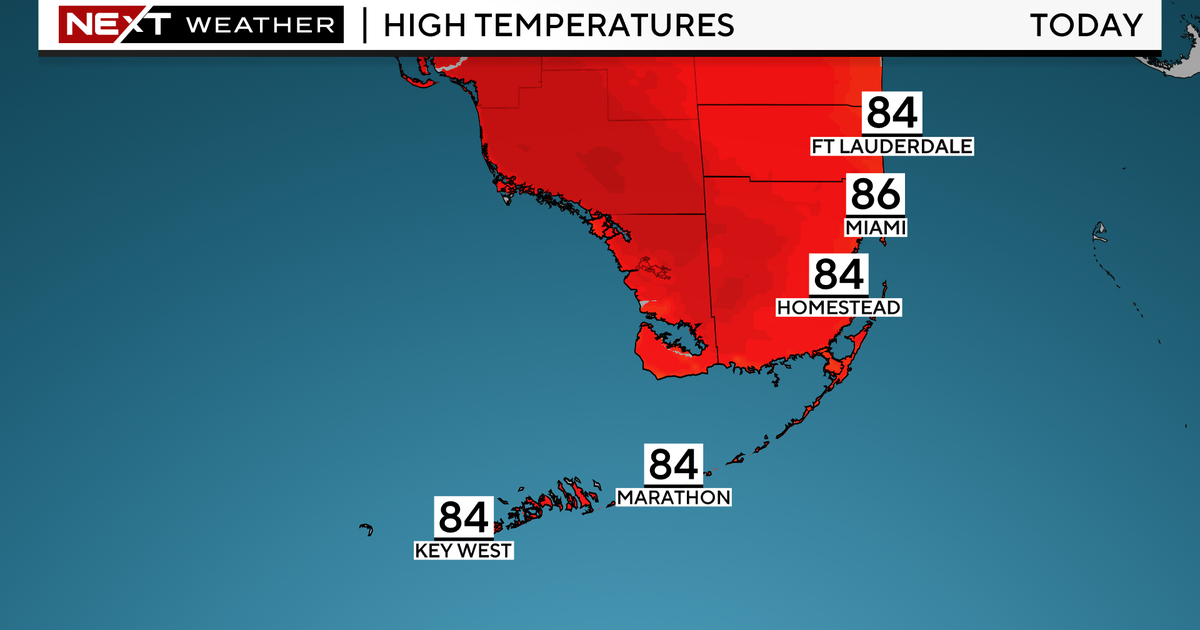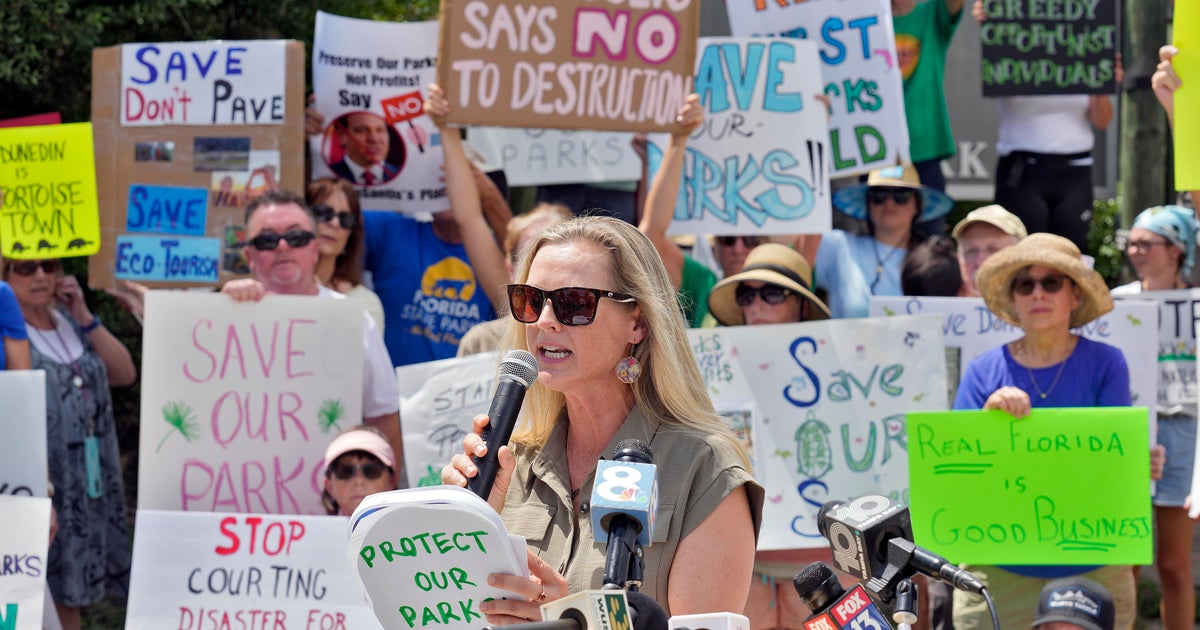Climate change threatens habitat of Key Deer, other native species
MIAMI - Traveling through the lower Florida Keys it is hard to miss Big Pine Key. It is the largest of the lower Keys and is also home to the Key Deer.
It's hard to miss the signs as you slowly drive through the neighborhoods here with homemade signs reminding you along the way to stay alert as deer are in the area.
They are only about two to three feet tall and can be seen everywhere in and around the Key. Backyards to roadsides to their natural habitat, pine rockland.
The problem is that habitat continues to shrink as seas rise and transition to a saltwater habitat. This means less food and water for the deer.
It's a problem that those in the Keys are facing along with the deer themselves.
"Sea level rise is slowing encroaching on the habitat making it smaller and reducing fresh water," said Chris Berg, program field director for the Nature Conservancy.
What used to be pine rockland is now just left-over dead pine trees surrounded by new mangroves, a plant that thrives in salt water. All around the Key, you can see the slow and steady advance of this saltwater transition zone, coming in from the coast and pushing farther inland year after year. "
"If we can't stop sea level rise, the habitat will continue to shrink, turning fresh water to salt water," said Berg.
Without fresh water to drink or to grow food for the deer and other animals that call Big Pine Key home, it leaves them with a bleak future.
"Basically, they won't have habitat and will become extinct," Berg added.
Saving the Key Deer helps many other plants and animals in the Lower Keys.
"So here in the Florida Keys, the Key Deer is that umbrella species that is helping all the other animals that need this habitat as well," said Christina Wilson, a wildlife biologist. "They play a huge role in the Florida Keys, they are always eating something constantly. Spreading these seeds throughout not only this Key but the surrounding Keys as well since they are good swimmers."
It is not only the slow rise of the seas that will put this healthy habitat at risk in the near future but also more powerful storms that push saltwater farther inland. Once there it can be tough for that water to drain with roads and other human development.
"What happened over time, we would have coastal storms pushing saltwater into the marsh and it wouldn't be able to get out," said Kevin Kalis, the coastal program coordinator for US Fish and Wildlife. Key Deer Boulevard on this day was closed to the public for a good reason. It runs right down the middle of Big Pine Key and has acted as a barrier, not letting the saltwater drain back to the sea.
Restoration work has been underway to install drainage pipes and water control devices along the boulevard.
"Once we have this restoration fully functioning, we can manage the water allowing saltwater to escape or even hold back the fresh water," said Kalis.
Another tactic to help the deer involves the opposite of restoration.
"This is something we did on purpose, we call them prescribed burns," said Kalis as he escorted CBS News Miami's Dave Warren through what was left over from a fire they set over two years ago. These fires were once a natural process, but now left unchecked it allows these areas to become too overgrown. The fires open the habitat, which give the deer access to new supplies of food and fresh water.
"It's things like this we need to do to make space for the deer as seas rise and take away habitat on the fringes," said Kalis.
As the surrounding habitat shrinks, the deer and human population of Big Pine Key find themselves on top of each other. Those that live there do what they can to protect the deer near the roads with homemade signs telling others to slow down, but according to Berg, a lot more will need to be done in the future.
"The real root cause of this problem is people contributing to climate change. We all have a role to play in understanding our contributions along with governments at every level." Berg said.
It may seem like a losing battle, but it is one the people and agencies continue to fight on Big Pine Key. If that fight is lost it may not mean the end of the deer on the island today, but it could mean the end of the Key Deer.
"If they decide to move them to the mainland then they're going to be breeding with the white-tail deer there. They will end up not being Key Deer." Said Wilson.
The future for the deer and other species of the Lower Keys remains uncertain, what is certain is that a lot is being done to preserve them and other species as long as they can as the fight against sea level rise and climate change continues.




